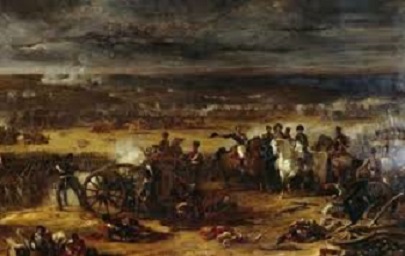From the beginning to the end of the Georgian period, the majority of the people were not allowed to express their vote for the power and political party. They expressed their grief in many ways like sharing their opinion in public as well as getting engaged in the riots in the streets.
The political power of ordinary males and females were very limited. Only those wealthy aristocrats who had a huge property, mercantile and the noble people of banks were given rights to vote and this numbered t very minor amount of population around 200,000 men. However, women were not allowed for this.
Georgian Parliament
The Georgian period, however, was the period of political stability and effectiveness as the crown was mainly dependent on the result of the parliament. The rule was established to arrange parliament every year and the government which was necessary to order and manage the House of Commons was selected through this parliament.
One of the great examples is Robert Walpole, who governed the politics during the rule of the first two George and he was considered as the first Prime Minister of Great Britain. He was gifted 10 Downing streets for residence by King George II for his great governance.
In spite of this stability there existed many flaws. The land estates of the members of the ruling party kept on increasing as they were married amongst themselves. They all usually had a get together at country mansions or expensive resorts.

The two main political factions were “The Whigs ” and “The Tories” during that period. The members of the Whig party used their influenced the wealthy aristocrats with their connections and financing. The Tory Party, on the other hand, focus on the Upper class of Rural areas rather than connecting with wealthy aristocrats. Both these parties always conflicted with each other and strived for the control of the parliament.
Despite such high-level actions taking place, the growing new town like Manchester had no parliamentary representative at all.
Bribing, Corruption, and Riots
The members of the parliament expected themselves to get bribe and they got sold at very cheap rates with some money for a vote and in addition to that expensive alcohol and food. The famous politician of that time Richard Sheridan amounted to $1000 for his election in Stafford in 1780. The Seats even were sold to the highest bidder during that period.
Corruption existed highly in the voting matter of the parliament. Few members of the parliament were just elected to represent fake voting means they could not have proportionate representation of themselves in the existing parliament. They were bribed highly by major landowners to support for them. They may be the tenants of the landowner who are forced to vote as instructed by the face eviction.
Even though ordinary people were not allowed to vote but their public opinion was very important for all. Their public opinion could give rise or fall to the reputation of an individual or political parties in a fraction of time. They sometimes bullied the Whigs and Tories like parties. Also, there was a huge market of political pamphlets, ballads, books and newspapers where many politicians were made fun of by drawing their cartoons.
What Were The Effects Of The Riots?
Riots were very common during that time in both towns and country. In London, stones were thrown at the carriages of famous politician and ministers. many times the house owners were forced to light up their windows showing the celebration of the political victory of the parties and they formed mobs around their political leader.
In 1780, a law was passed which gave more rights to Catholics and this resulted in riots in London for a week in its protest. The Catholic people were attacked and their properties were broken and burned out. They also attacked the Bank of England and the major prisons of London. An army was called to take the situation under control and around 200 people were killed in this riot. This riot then became famous as “Gordon Riots”.
Another cause of riots was rising food price. for example in Wiltshire, the food was grabbed from the stores and 3000 troops were called to scatter the rioters. Riots also resulted from industrial disputes and strike.
The French Revolution and the Political Reform
The French revolution was such a worse time for its government as the people there took overthrew the monarchy and took government under its control. This resulted in uneasiness and serious consequences in Britain as it described a dangerous time for politics.
Now, this urged for some changes in the political establishment to prevent Britain from such a revolution. Hence in 1832, the first reform act of England and Wales was passed after many manipulation and opposition from Duke of Wellington and House of Lords.
This act terminated fake voters and rotten boroughs. They created 135 new seats out of which 41 seats were allotted to designate MPs of the major English towns like Manchester. The registered voters who were previously 200,000 were now increased to 650,000 of which constituted to 1/6th of the adult population of the male.
However, this major gainers of this act were rich people from the middle class instead of the working class people. It can be concluded that although the ruling party had expanded with no corruption for the electorate the party was still ruled by an elite.